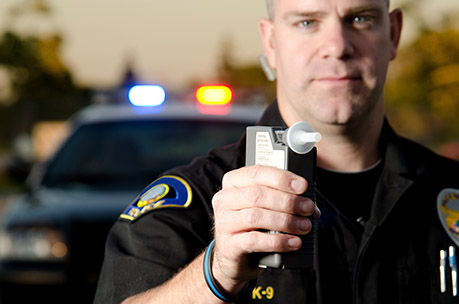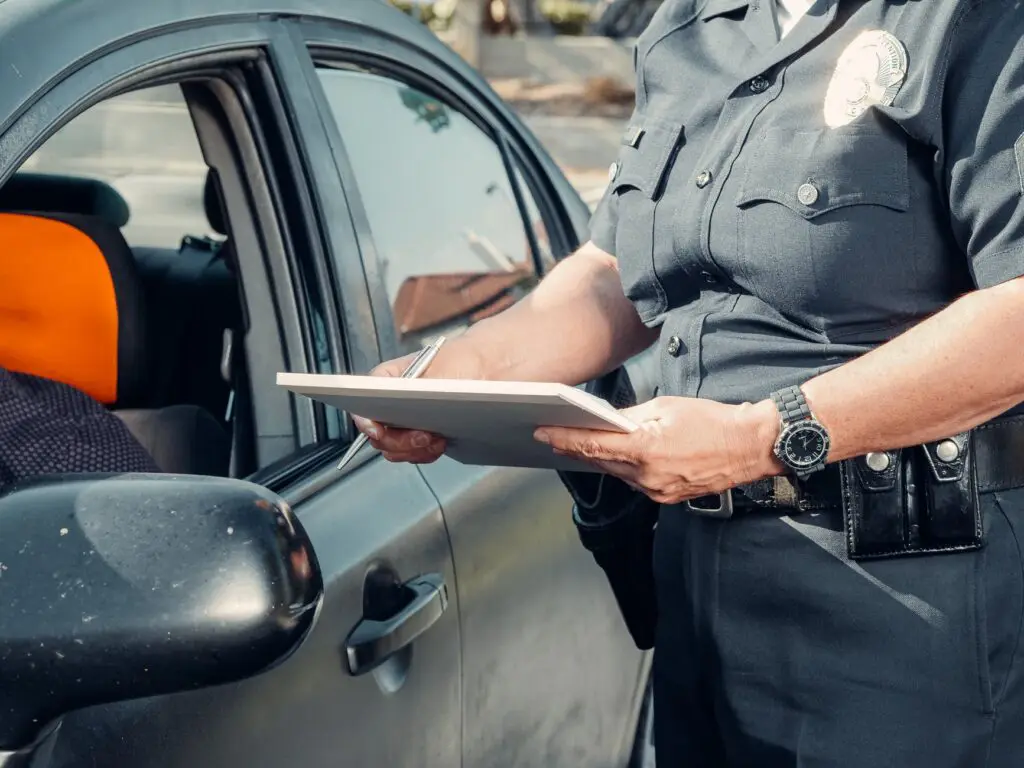If you are convicted of driving while intoxicated in North Carolina, your driving privileges are…
What Is The Difference Between A DUI And DWI? When most people hear the words DUI and DWI, they think of one and the same thing. In definition, DUI stands for “Driving Under The Influence” while DWI has two definitions - one stands for “Driving While Intoxicated” and the other is “Driving While Impaired” (by drugs). When we use the first definition of the DWI acronym, then it is the same as a DUI. However, there are several key differences between these two charges.
In this blog post, we will take a look at what those differences in the impaired driving laws are as well as the possible penalties for each. If you have been charged with a DUI or DWI charge, it is important to seek legal help right away. An experienced DWI and DUI defense attorney can help lessen your charges and get you back on track.

The Number Of Yearly Arrests For Drunk Driving
As often as every two hours, alcohol-related accidents occur and kill about three people. Approximately 25% of all traffic deaths occur as a direct result of alcohol impairment.
This is quite alarming because the number of arrests for DUI and DWI has been trending upwards in recent years. In 2013, more than 27 million drivers admitted that they used their vehicles while impaired, but according to the National Highway Traffic Safety Administration, approximately 1.5 million people per year are being arrested.
This means that one out of every 121 licensed drivers gets arrested for drunk driving, but thankfully the numbers show a decrease year on year.
DUI is a more common charge than DWI, however, a DWI carries much heavier charges than its counterpart. Misdemeanor charges are typically less severe than felony charges, but this is not always the case.

What Is A DUI in North Carolina
When someone is driving under the influence (DUI) of alcohol or drugs in North Carolina, they can be arrested and charged with a crime. DUI is a serious offense in North Carolina and can result in fines, jail time, and a license suspension.
In order to be convicted of DUI in North Carolina, the prosecutor must show that the defendant was driving while impaired by alcohol or drugs. This can be done by showing that the defendant's blood alcohol concentration (BAC) was above the legal limit, or by proving that the defendant was impaired to the point that they were unable to safely operate a motor vehicle.
Legal Limit For A DUI
A person can be charged with DUI even if their blood alcohol content (BAC) is below 0.08%, but they are still too impaired to drive because of other bodily intoxicating chemicals. The legal limit for BAC in North Carolina is 0.08%. If a person's BAC is above this limit, they will be automatically charged with DUI.
Consequences For A DUI Charge
There are many consequences that come with a DUI charge in North Carolina. These include fines, jail time, license suspension, and mandatory alcohol education classes. A first offense DUI is typically a misdemeanor charge, but it can be upgraded to a felony if there are aggravating factors present, such as a high BAC or an accident causing injury or death.
What Is A DWI In North Carolina?
A DWI in North Carolina is a criminal offense that involves operating a motor vehicle while impaired by alcohol.
If you're stopped by police and they suspect you're impaired, you may be asked to submit to a field sobriety test or a chemical test to determine your BAC. If you refuse to take either of these tests, you can automatically be charged with a DWI.
Legal Limit For A DWI
In North Carolina, the legal limit for a DWI is a blood alcohol content (BAC) of 0.08%. If a person's BAC is above this limit, they will be automatically charged with a DWI. If a person's BAC is below this limit, they may still be charged with a DWI if the law enforcement officer believes that their ability to drive has been impaired.
Consequences of DWI Charge
The penalties for a DWI in North Carolina depend on factors such as your BAC level, whether you have any prior DWIs on your record, and whether there were any other aggravating factors present (such as having a minor in the vehicle).
Generally speaking, a first-time DWI offense is classified as a Class A1 misdemeanor, which is punishable by up to 150 days in jail. However, if your BAC was .15% or higher, you may be subject to enhanced penalties, including up to two years in jail.
A second DWI offense is a Class F felony, which is punishable by up to 41 months in prison. Subsequent DWI offenses will cause you to be classified as a habitual impaired driver and you could face even more serious penalties.
Consequences If Found Guilty Of DWI
Driving while intoxicated is a serious offense that can have lasting repercussions. If you are convicted of DWI, you will likely face a number of consequences.
For instance, you may lose your driving privileges for a period of time.
In some cases, you may be required to install an ignition interlock device in your vehicle. You may also see higher premiums and an increase in your car insurance rates.
You may be required to attend alcohol education classes or treatment, and you may be placed on probation. You may also face fines and jail time.
Furthermore, a DWI conviction will remain on your driving record for many years. As a result, it is important to think carefully before getting behind the wheel after drinking. The penalties for driving while intoxicated are simply not worth the risk.
Aggravated DWI
In North Carolina, aggravated DWI is a serious offense that can lead to a DWI arrest. If you are caught driving while impaired and your blood alcohol content (BAC) is .15% or higher, you can be charged with aggravated DWI.
This is a felony offense that can result in up to two years in prison. If you cause an accident that results in injury or death while driving under the influence, you can be charged with aggravated DWI. This is a very serious offense that can lead to lengthy prison sentences.

What Is The Difference Between A DUI And DWI?
The term DUI, Driving Under the Influence, is used interchangeably with DWI, Driving While Intoxicated. Both terms refer to a person driving while impaired to some extent by either drugs or alcohol. However, there are specific definitions for each term.
DUI refers to drinking any amount of alcohol or being under the influence of drugs or both. DWI refers to drinking and driving. In some states, DWI also includes drinking and operating a vehicle. OWI, Operating While Intoxicated, is another term that refers to drinking any amount of alcohol or being under the influence of some type of drug that the state deems as impairing.
The main difference between DUI and DWI is that DUI is a misdemeanor charge, while DWI is a felony. This means that the penalties for each are different as well. A first-time DUI offender may face up to six months in jail, fines of up to $1000, and license suspension. A first-time DWI offender, on the other hand, may face up to five years in prison, fines of up to $5000, and license suspension.
However, there are some similarities between the two charges as well. Both DUI and DWI offenders may be required to attend Alcoholics Anonymous meetings or complete a substance abuse program. Additionally, both charges can result in a criminal record.
It is important to note that these are just general guidelines. The specific penalties you may face will depend on the specifics of your case.
If you have been charged with DUI or DWI, it is crucial to seek legal help right away. An experienced attorney can help you understand your rights and guide you through the legal process. With the help of an attorney, you can work to get the best possible outcome for your case.

How An Attorney Can Assist With A DUI Or DWI Offense
If you have been charged with a DUI or DWI, it is important to seek out the services of a qualified attorney.
A DUI or DWI conviction can result in significant penalties, including jail time, loss of driving privileges, and heavy fines. An attorney can help you to navigate the complex legal process and ensure that your rights are protected.
In addition, an attorney can investigate the circumstances of your case and challenge any evidence that may be used against you.
With the help of a qualified attorney, you stand a much better chance of obtaining a favorable outcome in your case.
Contact NC Law Talk For Assistance On DUI/DWI Charges
NC Law Talk provides free consultations to anyone in need of legal services regarding DWI or DUI. We have a highly qualified professional team that is well-educated on DUI and DWI cases.
For more information about DUI and DWI, please give our team a call at (919) 439-5104, starting today. We would be happy to answer any of your questions and help you get started on your case.
